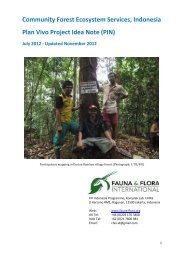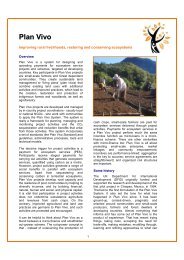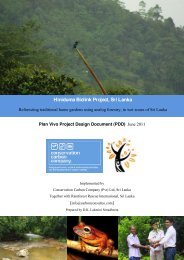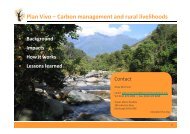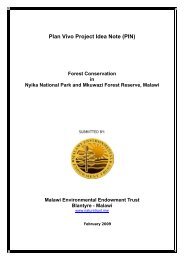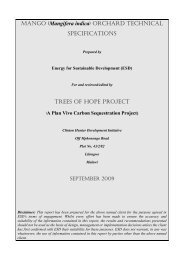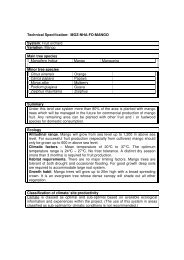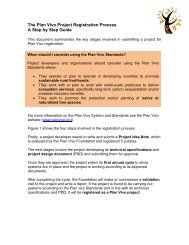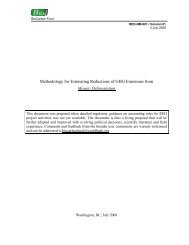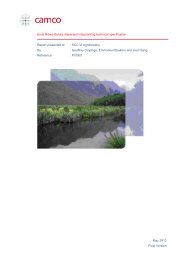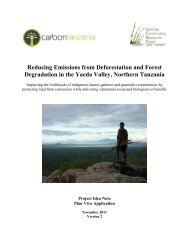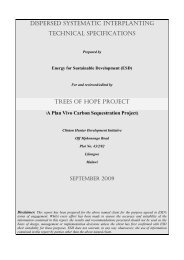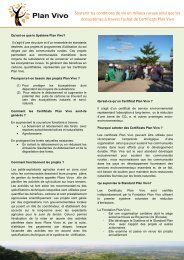Download PIN - Plan Vivo
Download PIN - Plan Vivo
Download PIN - Plan Vivo
- No tags were found...
Create successful ePaper yourself
Turn your PDF publications into a flip-book with our unique Google optimized e-Paper software.
Choiseul <strong>PIN</strong> V1.0 12022013 the project. [<strong>Plan</strong> <strong>Vivo</strong> Certificates are generated through activities where communities or smallholders have rights to implement activities and benefit from payments for ecosystem services. This can be demonstrated through land-‐tenure or long-‐term recognised user rights. Deeds of title are not strictly required if tenure can be shown to be lawful and widely recognised. If project activities are to be undertaken on government owned land that individuals or communities have use-‐rights for, it should be demonstrated that the government body will recognise the community’s ownership of the carbon credits. Important questions to consider: • How difficult is it to prove land-‐tenure in the project area? • Is there a system of national or regional land reform underway that could affect the project?] Source: 2010 <strong>Plan</strong> <strong>Vivo</strong> <strong>PIN</strong> Template, p5. 2.8.1 Land Tenure ContextIn the Solomon Islands 86% of land is held as customary land. The Land and Titles Act, CAP 13, Section 2 defines customary land as; “any land (not registered land, other than land registered as customary land) lawfully owned, used or occupied by a person or community in accordance with current customary usage.” Around 13 percent of land in the Solomon Islands is held under government or private ownership. This alienated land is registered under an indefeasible title and administered under the Land and Titles Act (Cap 133), which provides the legislative framework for land administration and registration. Under this Act land can either be registered as: - government land; - land held under a perpetual estate; or - land held under a fixed term estate. There are two main options around land tenure arrangements for a REDD+ project. These options are based on a policy decision about whether a REDD+ pilot project requires land to be held in perpetuity (for all time), or whether a lease arrangement (for 50-‐75 years) is a sufficient legal basis for operating a REDD+ pilot project. Live & Learn seeks to provide legal protection to customary landowners involved in the project through an instrument that defines legally defensible land ownership boundaries and tribal group membership. Consultations with the tribal groups have established that land registration (and lease back arrangements) requiring alienation of customary land is not an acceptable option for the landowners. Hence instruments for legally defensible recording of land boundaries (that can be used to exclude external interests) will be sought to protect the 34



